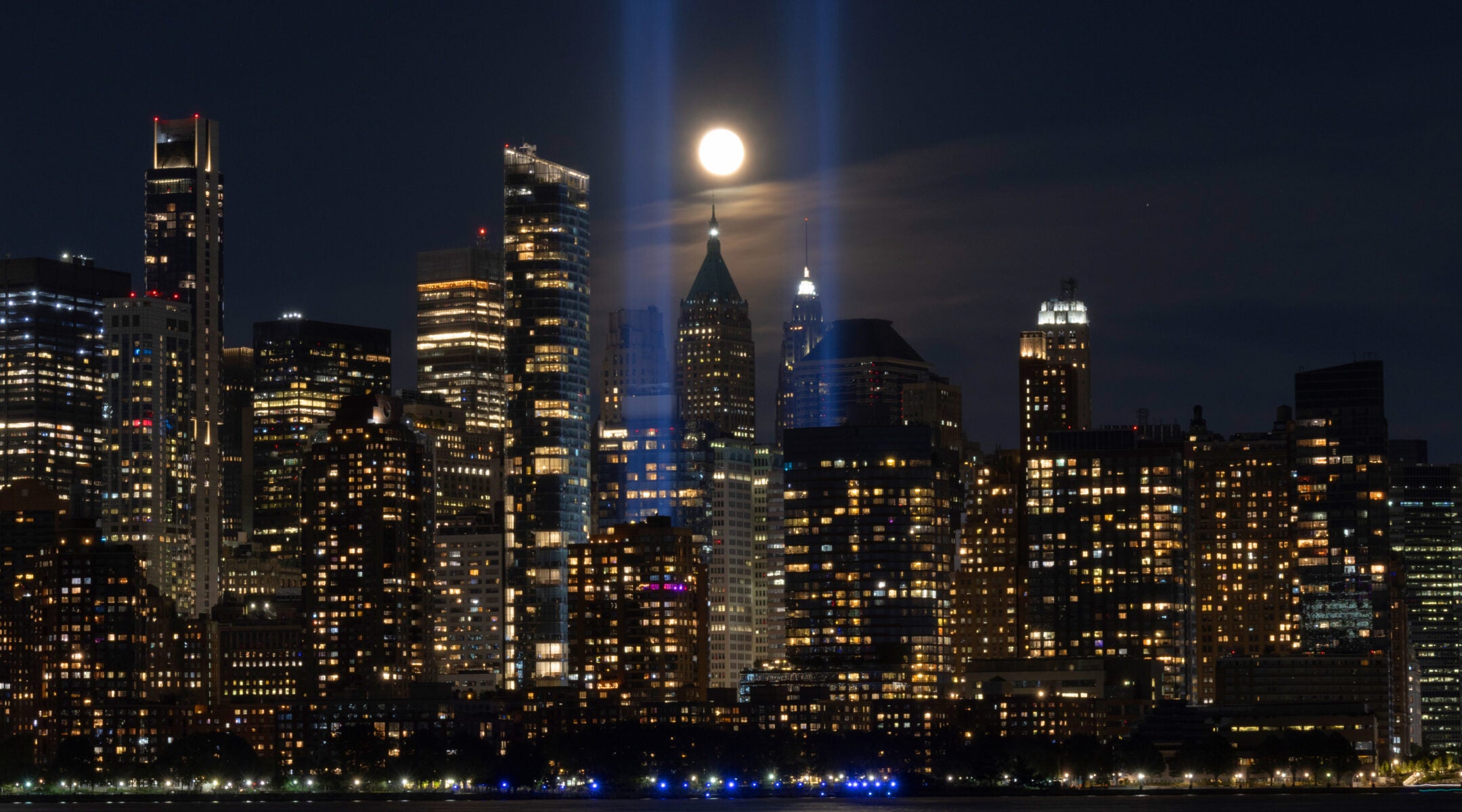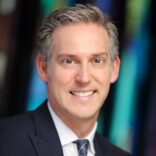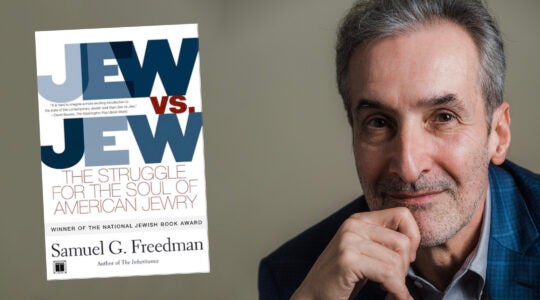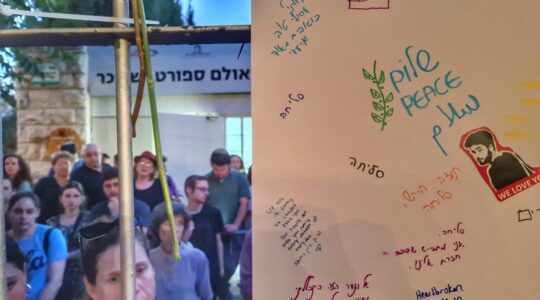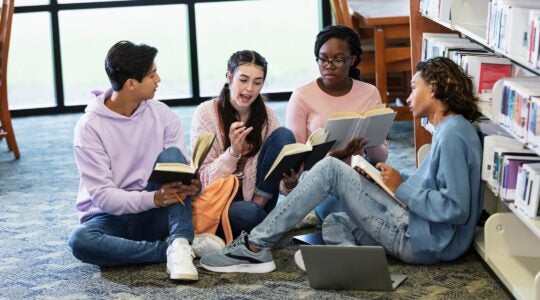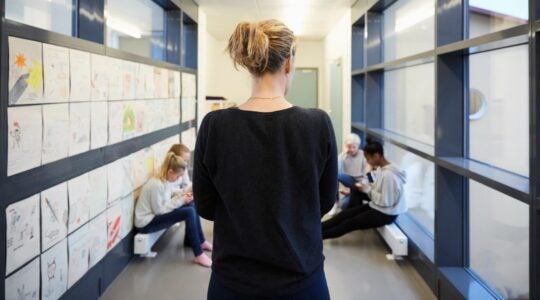When I recently asked a group of middle schoolers how they define peace, they answered: the opposite of war, the ability to listen, and being able to see a common trait in someone unlike yourself.
I wish someone asked me that question 24 years ago, on 9/11.
That day defined my life. As a sophomore at Columbia University, I witnessed the world fracture. I will never forget the last time I saw the glistening Twin Towers. I will never forget 10:28 a.m., when my biology professor abruptly dismissed class as the north tower fell.
I will never forget learning about Josh Birnbaum, of blessed memory, a new Cantor Fitzgerald employee and my resident advisor’s best friend, trapped on the 102nd floor.
I will never forget driving out of the Lincoln Tunnel for the High Holidays witnessing the plume of smoke rising.
And I will never forget the trust that humanity lost. The iceberg of extremism, separating voices that once sat together, now unable to converse.
Since that moment, we have witnessed wars in Iraq and Afghanistan as well as extremism movements such as the Taliban and the IRGC exporting terror from Iran around the world. A generation grew up hearing the word peace, but never being able to envision it.
In those two decades, as I graduated from Columbia and then rabbinical school and began serving in a large congregation in the city with the third largest Jewish population in the world, I could count the number of Muslims I had broken bread with. The communal pressure to not engage was real. So were my own personal fears.
We only need to look at what happened 700 days ago on Oct. 7, 2023, to verify these fears, with the murder of 1,200 men, women, and children in Israel, and 251 hostages taken to Gaza by Hamas. With the rise of the horrifying humanitarian crisis in Gaza affecting innocent Palestinians, the fear and blame of the other continues to grow with no hope for a day after.
Yet, on this 9/11, 24 years later, I am choosing to engage in a difficult exercise that sometimes looks and feels like swimming upstream — but I believe has the ability to break open the dam.
At my congregation, I have been inviting in speakers whose role is to engage, not generate agreement, on topics that sit at the heart of our fear. In recent weeks, I’ve hosted talks with multiple people offering paradigm-shifting perspectives on Gaza: the chair of the Gaza Humanitarian Foundation; the head of IsraAid, an Israeli nonprofit delivering aid to Gazans; and Ahmed Fouad Alkhatib, a Palestinian-American voice of pragmatism.
Now, on 9/11, we’ll be holding a communal conversation between our Jewish congregants and Muslims from Morocco, Egypt and Bahrain. If someone had told me 24 years ago that this would be on my calendar, I would have said, “You’re dreaming.” Yet, Psalm 126 tells us the Jewish people “are like dreamers.” And today that dream is a reality, made possible by a new generation committed to breaking barriers, dedicating the time to invest in community despite great obstacles to overcome. Governments sign peace agreements, but human beings look into each other’s souls. This must be the new path forward.
Sharaka, the group bringing these Muslim leaders to meet with my congregation about ways we can work together to forge peace despite our battling governments, is Arabic for partnership. The organization was founded in 2020 during the creation of the Abraham Accords, an economic model for Middle East peace and coexistence that has sustained itself even during the devastating unrest and war we have all witnessed. Sharaka is based not on fear but on love, focusing on normalizing people-to-people relationships.
This moment of Sharaka, partnership, takes courage. It takes courage for synagogues and mosques to welcome this conversation on their pulpits, and it takes courage to publicly speak, together, on a college campus, in the workplace, and on the town square — kippahs, burqas and crosses all engaging in productive dialogue and action.
Twenty-four years ago were some of the darkest moments of my life. I will never forget the smells of burning humans, the sights of horror, and the sounds of fear.
Now, twenty-four years later, I am proud to be involved in creating a moment of light that I anticipate also always keeping with me: the sights of embracing, the smells of the bread we break together, and the sounds of the dialogue of tomorrow.
We will never forget the tide turning as the pragmatists — the vast majority of us — join forces to expel extremism and embrace our commonality and yearn for hope, healing, and wholeness. Our children deserve to inherit not our fears, but our courage to build peace. The true memorial to 9/11 will not be in stone or steel, but in the bridges we choose to build.
JTA has documented Jewish history in real-time for over a century. Keep our journalism strong by joining us in supporting independent, award-winning reporting.
